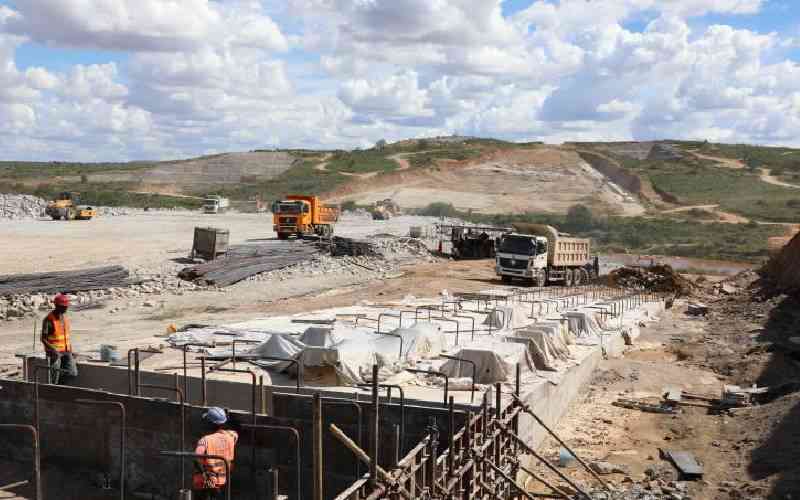×
The Standard e-Paper
Home To Bold Columnists

The construction of a multibillion-shilling dam in Eastern Kenya billed as critical for the country's food and energy security needs has been thrown into uncertainty after the contractor was slapped with an auction suit.
The Chinese contractor of the Sh82 billion Thwake Multipurpose Dam is faced with auction over non-payment of a disputed debt owed to a local construction company it subcontracted to execute part of the mega project.